Leon McCarron is a Northern Irish adventurer, filmmaker, writer and speaker. He specialises in long distance, human-powered expeditions. In 2012, I walked through the Empty Quarter desert with him. I chatted to Leon for Grand Adventures, asking him about his different journeys and how to make a living as an adventurer.

Alastair: You’ve done big trips by bike and on foot. Compare and contrast, please.
Leon: I think I always enjoy journeys by human power whatever they are, because of the way you can travel slowly and see places. And you have that really nice physical challenge to go along with everything else. But, walking is ultimately so much harder than cycling and there’s rewards within that because you do manage to immerse yourself even more. But the more I walk, the more I realise I wish I did more cycling! Ultimately, cycling is probably the best way to travel that I’mve ever come across.
Alastair: Do you think cycling is the best balance between slowness and misery versus actually getting somewhere?
Leon: I think so. Cycling does have its down sides as well. Perhaps it’s just my personality type, but I find it very easy to fall into a trap of going too fast on a bicycle, as hard as that may sound to some people. It’s very easy to just push the miles because it’s cycling; 100 miles in a day really isn’t that difficult once you’ve cycled for a few weeks at a time. On walking trips, you can’t do that. You’re forced to go slow. One of the reasons I keep doing walking trips is to force myself into that immersion. But in terms of efficiency, nothing matches a bicycle.
Alastair: Another problem when you’re walking, perhaps, can be that because it is so slow, you then have less inclination to take spontaneous detours from the route.
Leon: Yeah.
Alastair: Although, I also find the same problem cycling because I just go much quicker and zoom on past interesting-looking turnings.
Leon: Exactly. It’s all a mindset thing, isn’t it? If you fall into that trap of just wanting to get a little further down the road because you’ll be a little bit closer to whatever it is you’re trying to reach, then you’re always going to miss out on the fun’¦ the detours and so on. It’s a matter of reminding yourself why you’re doing the trip in the first place and what you want to get out of it. If you just want to get from A to B, then, well, you should probably take a bus. But if you just want to see what happens along the way and explore where you’re going through, then remind yourself to go slow.
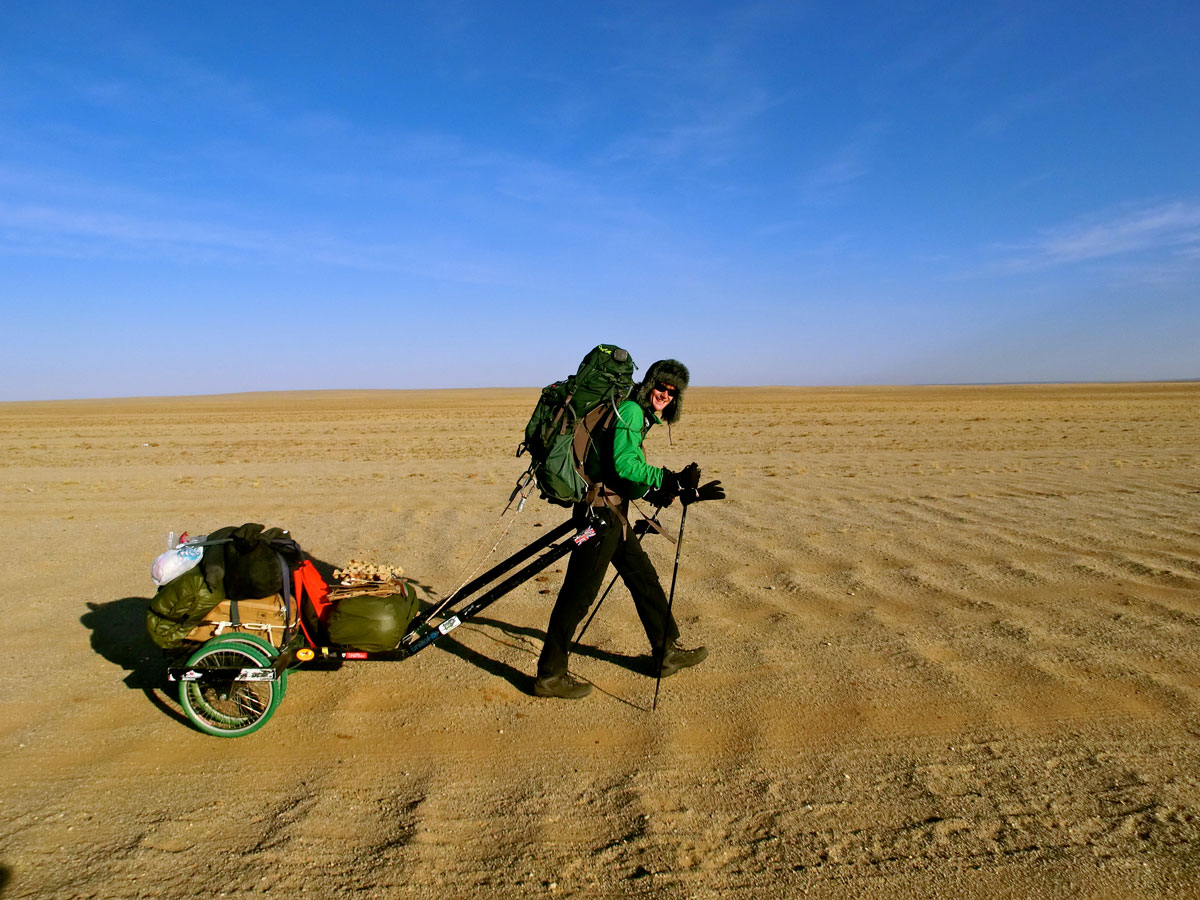
Alastair: Yeah, I think going slow is so important, isn’t it? When we were in the Empty Quarter, we were both rushing to get to the end and then there was nothing to do there except check our emails for a few days before going home. It was a bit stupid.
Leon: That was a primary example of it! I think that was probably a bigger test than most because it was a desert: if you turn left there’s desert, and if you turn right there’s desert, and if you keep walking, there’s just slightly less desert until you get to the ice cream shop at the end. But, in a different scenario where you’re, say, cycling through Europe, you can go to the mountains, or you can go to the forest…
Alastair: I think people naturally assume that the longer your trip, the better it is. And I think to a degree that’s true. But I wonder what you think are some of the similarities and differences between your six month epic across China and Mongolia on foot versus something that lasts maybe a couple of weeks? What I want to try to work out is, is it better to do a long trip? I think there are obvious reasons why it may be, but I think once you go beyond some sort of threshold, then extending it beyond that is pointless…
Leon: I think there’s a lot of qualities to a big adventure that when I was younger were really appealing. Now, I’mm just a few years older but I’mve done a few big trips those attributes are much, much less desirable.
When I set off on my first big adventure, I wanted it to be really long. I wanted it to be indefinitely long because I felt I needed that, and I wanted all the challenges, and I didn’t really want to be able to see an end point. I wanted just to keep pushing myself and see what would happen. And I wanted it to be really cheap and miserable. I wanted not to be able to spend much money, and just to force myself into action in all sorts of senses.
But now, I don’t necessarily want really long trips because I quite like all the comforts of home and everything else. And you’re absolutely right, you can get the same highs, the same lows, the same emotional responses from a few weeks, perhaps even a few days. That’s the core of your microadventure concept and it’s really true. The only thing you can’t get is that real right of passage, testing yourself against the world. If you’re young and angry, then you need to go and do a long trip. But other than that or unless you like the nomadic lifestyle where every day is a new location, then shorter trips provide all the same results.

Alastair: There must be some sort of equation you could work out, the things you need to go into a trip, and the time it needs to be done in order for it to be fulfilling and everything after that is a bit of diminishing returns… But your China trip, if it had been one, two, maybe even three months less would have not made it a worse trip; might it even have made it better?
Leon: (laughing) It would have definitely made it better! It’s funny, on the China trip at one point, Rob injured his foot and he really wasn’t sure he was going to be able to continue walking. We’d only done about a sixth of the trip and we had a pretty rigid schedule because Rob was married and wanted to get back to his wife. And I didn’t want to be walking through China for the rest of my life either. One of the things we considered was making it a multi-method journey, moving to bicycle, and packraft. Just mixing it up a bit and going a little faster. We didn’t do this because Rob’s foot recovered and in the end, I’mm really glad and quite proud we walked such a big distance. But, a lot of it was a slog because we were on a schedule. We had to get there in six months. If we jumped on a bicycle, and packrafted down a river, and freed ourselves up a little more, we might have actually had more fun. We might not have had the same sense of pride and reward at the end, but it’s an interesting balance.
Alastair: But if you’re having fun, you’re on holiday.
Leon: No, increasingly, I completely disagree with that. You can have a very fun adventure and not be at all miserable, or cold, or depressed.

Alastair: Your walk across China and Mongolia was commissioned by National Geographic TV so you got a wedge of cash to go make the trip happen and a guaranteed TV series at the end of it. I imagine to most aspiring adventurers that sounds like the absolute dream ticket.
Leon: Yeah, it does and I wouldn’t change it for the world. I like to complain about it sometimes but it was absolutely my big break. And although I’mm far from rich, successful, and famous, it’s the thing that I did that allowed me to begin to make a career out of this. Because I could say I made a TV show for National Geographic, and it gave me so much more credibility in quite a busy world of people trying to be adventurers. But, it’s the only trip I’mve ever done where I’mve been given money by someone to do a journey. Everything else I’mve self funded. And, the difference was that there are so many more obligations that come along with that. It’s great to have a big name behind you, it’s great to know that whatever you’re creating will be consumed by people on a TV show that thousands of people could watch. But, that means you have to fit into someone else’s idea to a certain degree, you have to hit certain markers, and finish on a certain time, and perhaps film things in a certain way. It was a huge learning curve and I wouldn’t change it for the world. But now, I absolutely prefer the freedom of doing my own thing.
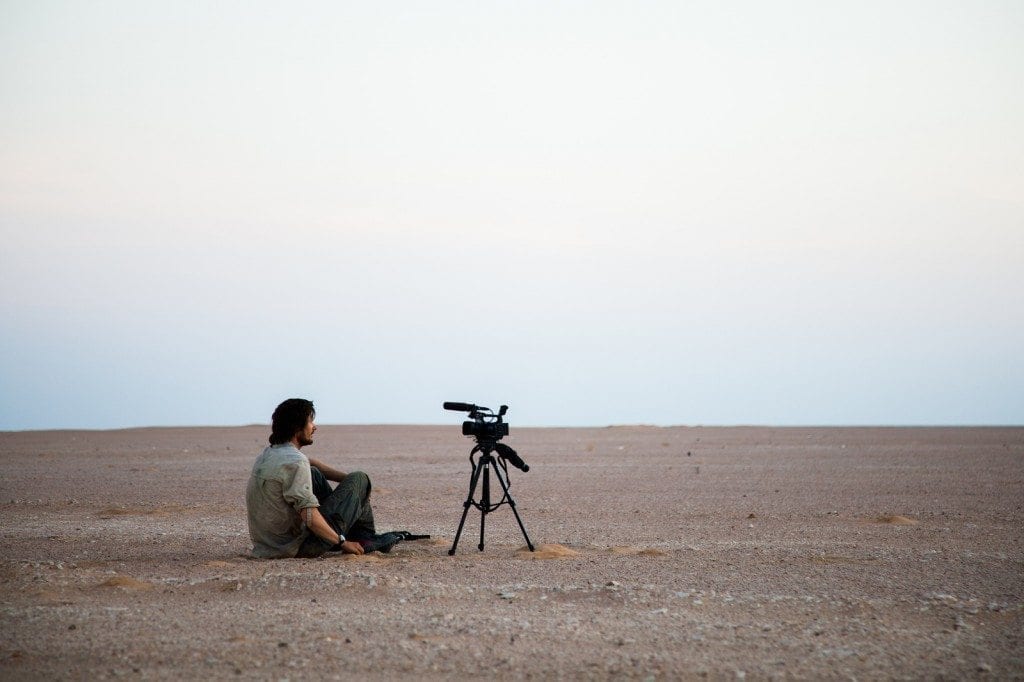
Alastair: All of your trips you’ve filmed. Why have you done that?
Leon: The first trip I filmed was my first trip when I went cycling. I didn’t really have any grand ambitions on that first trip. It was an indulgence to play around with being creative. I enjoyed being creative and thought I would film it for myself, to improve and learn.
Alastair: You had a creative background, didn’t you?
Leon: I’md studied film in university but that was just because I didn’t know what else to study. Prior to that, I’md had been quite musical, and I’md always thought I would just end up being a guitarist in Led Zeppelin.
So being creative and trying to share that with people was always something I enjoyed. I started filming just as a way to learn a new skill and play around with it. I thought it was a great way to tell a story. I wasn’t very good at it to begin with, I still may not necessarily be amazing at it, but it’s so much fun learning and doing that on each trip. I just think writing and telling a story visually are the two best ways to share an experience.
Alastair: It’s nice that you can write about and film a trip: they don’t get in the way of each other. Whereas I think filming and photographing a trip are incompatible.
Leon: The great thing about writing is you go and do something and then just come back and write about it, having not necessarily made any notes or really even thought about what you were going to write. A lot of it will just be stashed away in your memory somewhere. If you can make notes, all the better. But filming and photography: either one of them involves a huge amount of compromise on your trip, and it’s one of the reasons why when I go on shorter walks or off for a weekend, I very rarely film it or even take a camera. Because I love the freedom of not having to think about a story. Filming’s a great way to share things but it does come with a compromise.
Alastair: Do you think it’s only worth filming a trip if you’re going to really put some effort into it?
Leon: Yeah, for sure. Even more than that, I think it’s only worth filming a trip if you know exactly what you want to do with it. If you just want to film it because you think it might be cool to have a film of your trip, then I would say probably don’t bother because you’ll just annoy yourself and then you’ll annoy all your friends when you make them watch your terrible film at the end of it. I mean, you can just take a little GoPro and shoot a little footage here and there, and that will probably do. But to do it properly is such a huge undertaking. You really need to know what it is you want to do with it. Do you want to try to make a film that you can release? Do you want to make something that you can just use to promote yourself? Do you want to tell a specific story? It really needs to be planned out in advance quite a lot. That’s what I’mve learned anyway. When I’mve not planned things in advance, they’ve often turned out to be a mass of footage that has no narrative and can’t be strung together and I feel like I wasted my time and could just have had much more fun on my holiday.
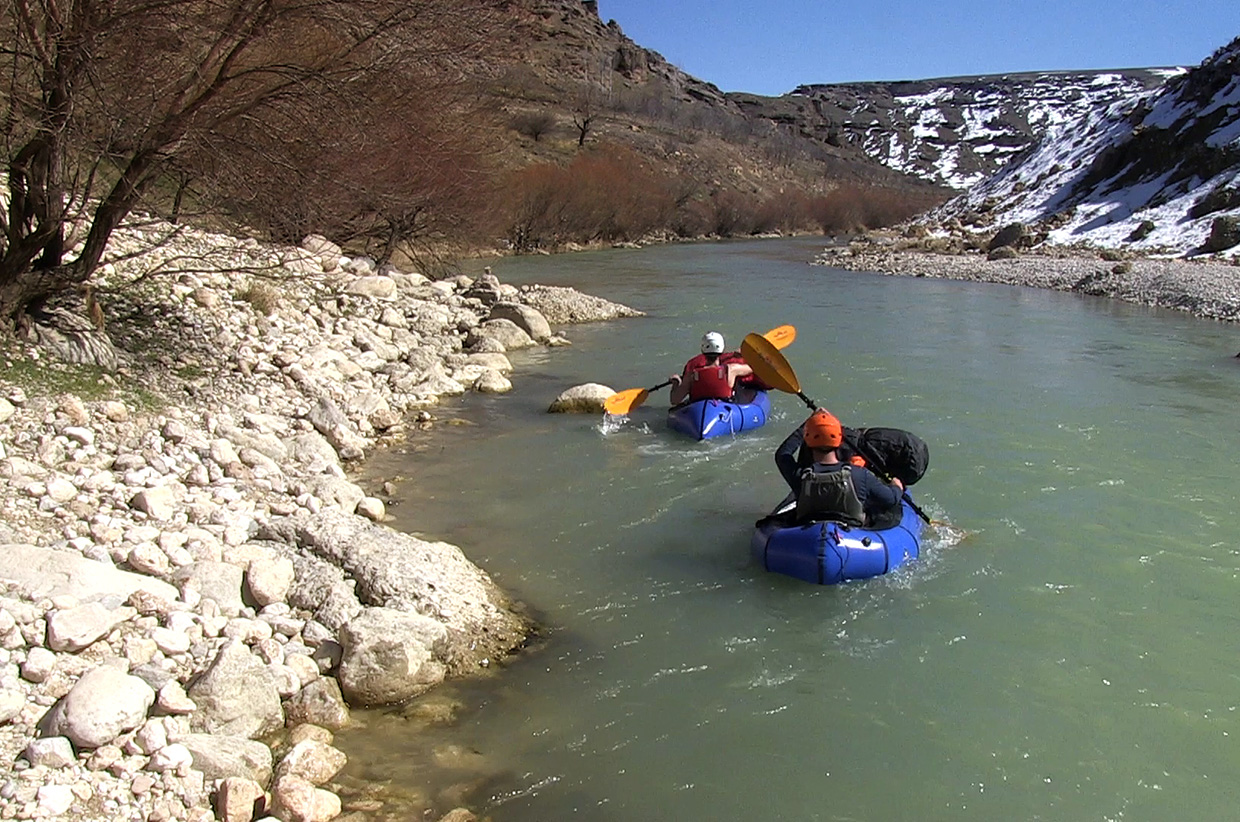
Alastair: You’ve done a big trip now where you’ve had a film commission in place beforehand and you’ve done a big trip now where you just went speculatively but with a specific aim of making some sort of film out of it. What are your advice on those two options of filming a trip?
Leon: Having the commission was fantastic, and it was really lovely to be given a chunk of cash to go on a trip and to be able to break even on it rather than spending my own money. But I went into it completely naïvely and didn’t realise all the things it would undertake: the production company and broadcaster that I worked with were both very professional. I was completely new to the game and didn’t really realise what it would entail. Whereas, when I went off with you, and we just put our own money in and made a film and kind of came up with our own narrative for it, and worked out a way to get it made and get it out there, I felt like we had so much more creative control and freedom.
And so, I think working with a broadcaster and a production company is fantastic but you need to know what you’re getting into and know how that relationship works. And even more so, the most important thing is I think it’s just so hard to get a commission to get anyone to pay for your adventure and to put it out on to TV or to film. So ultimately, it’s not even really a choice. I’mve had it once and I think I would really struggle to get a commission again. So for 99% of people, the choice isn’t there. You can only really realistically do option B which is to go find another way to fund the trip and make the film yourself.
Alastair: And then, even once you’ve made the film itself, I think it’s important to point out that in order to get on TV, it needs to be a series, doesn’t it? So for example, our desert film couldn’t really have been on TV because it was just a one-off, one episode story, isn’t it?
Leon: TV seems to be mostly interested in a series and mostly interested in things that ultimately might have more longevity, an idea that can be repeated and twirled out again in different formats. And also, TV seems very interested in the idea of a real goal, a real quest, rather than how interesting you might be or I might be or the idea of someone starting somewhere and going somewhere else and just seeing what happens along the way. That just doesn’t make it on TV unless you’re already Ewan McGregor or some sort of celebrity. The fact that our China show got commissioned at all was incredible. I think it was the exception that proves the rule.
Alastair: But even that got commissioned because it was Rob’s second series, wasn’t it?
Leon: Yes.
Alastair: So, the really lucky break was getting his first speculatively shot film onto telly, which I guess shows that it can happen, even if you do a load of wobbly filming without a tripod!
Leon: Exactly. I mean that’s a really lovely story, isn’t it? It’s the idea of you go out, you do the trip for you, you achieve all the things you want personally, and you dabble a little bit in being creative, filming something. And because it’s good, and so raw, and so honest and genuine, then someone like National Geographic can pick it up – with a little bit of luck and being in the right place in the right time. It’s very rare but it’s really nice to know that it can happen.
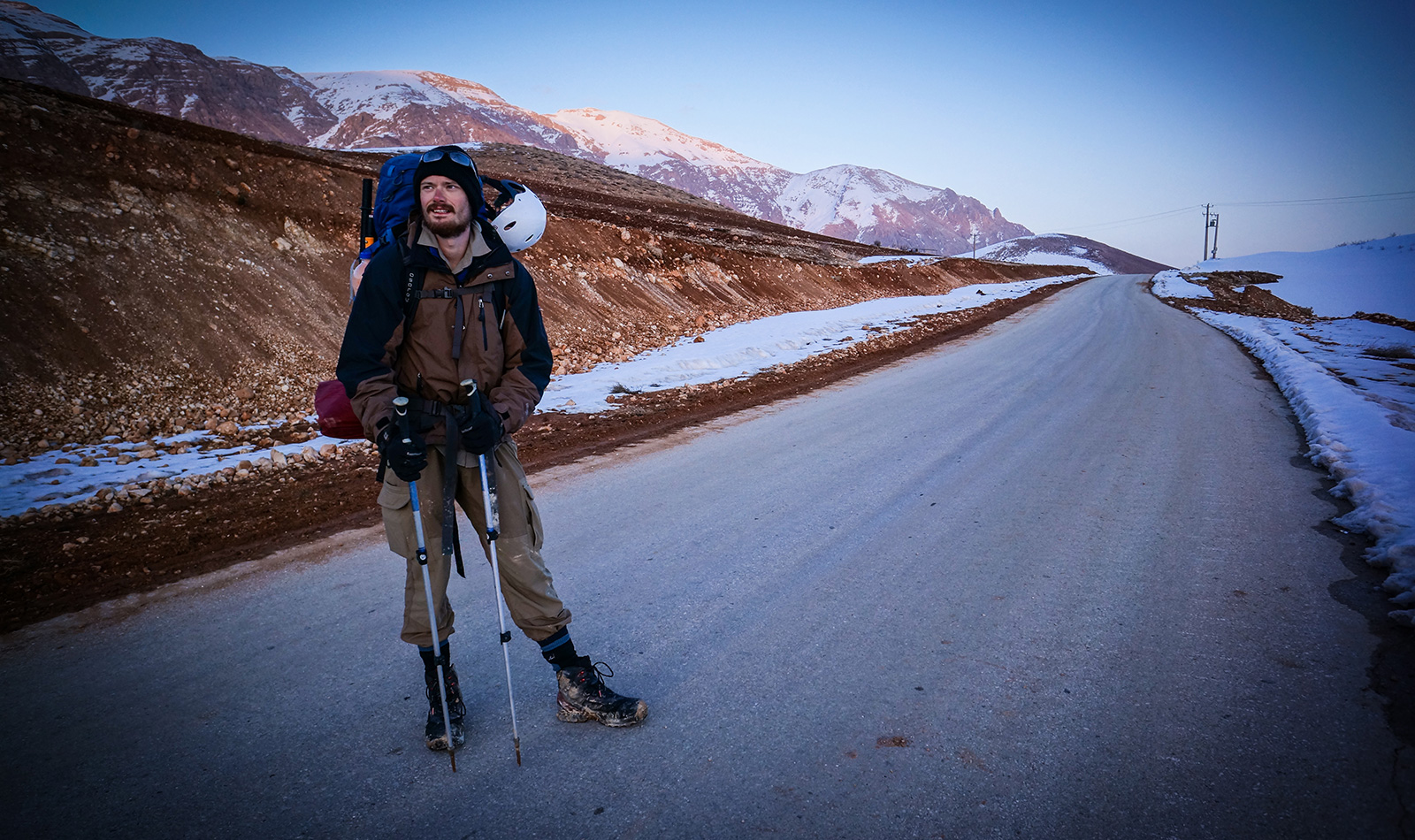
Alastair: Yeah, definitely. So how are you finding life now as a professional adventurer in terms of well, just making it a viable life really?
Leon: I think it takes a little bit of getting used to. Until quite recently, I preferred just to operate on the fringes of normal society, which meant that I didn’t really pay rent for a long time. I bounced around between people’s houses and just reduced all my outgoings so that I could afford to go on adventures. But almost all the professional adventurers I know make a living through either giving talks, writing articles, or creating a product of some sort like a film or a book and selling that somehow. And those are the three methods that I mainly use.
And nowadays, I’mm increasingly keen on the idea of having a base somewhere. Because I quite like having roots, and a home, and friends, and family, and community around me, and then going out for a couple of trips a year for a month or a couple of months. I think that’s the most important thing about going on adventures in general: finding something that still really appeals to you as an individual, rather than just going to do something because it seems adventurous and you think people might find it cool.
Alastair: That model though of going off on one big trip a year, you could do that quite conceivably with a proper job. You could for example be a teacher, and go off and do that.
Leon: Yeah, absolutely and I think that’s a really great way to do it. The key of course is finding something to do with the rest of your time that still keeps you fulfilled, and I’md be a rubbish teacher. I’md be rubbish at most things, which is why I ended up being an adventurer!
But what really gets me up in the morning is the idea of trying to share stories with people in one way or another. I think it’s such a powerful tool and a really cool thing to be able to do from adventures. And it changes it from being a slightly self-indulgent, hedonistic kind of lifestyle to something that you can use to make a difference, even if it’s just entertainment, or a bit of inspiration, or trying to show a completely different side to a place and giving a platform to ideas and thoughts that people don’t otherwise get. That’s what really drives me when I’mm not on trips – sharing stories.
Alastair: I think that’s really important that you actually enjoy the stuff, and it’s not just the trips itself. Being an adventurer, a professional adventurer is about so much more. The trips are actually just the tip of the iceberg, really.
Leon: Yeah, going on a trip is never going to make anyone any money in itself. It’s really what you can do with it afterwards. And that definitely needs to be a passion as well. Otherwise, what’s the point?
Alastair: Absolutely. Your first book has just come out, about cycling across America. So I see you now as a sort of younger, ugly, less-talented, inept version of how I was a few years ago when my first book came out [note to American readers: this is how British males show each other affection]. Actually, you did better than me: I had to self-publish my first book. How have you found the process of writing a book and getting it published?

Leon: I think the whole thing with my first trip, and it sounds like your big bicycle journey was similar in a way (although slightly less cool than mine), was that we both did it just because they want to go on a big bicycle journey. I never expected to get anything out of it. But when I started doing other trips and looking back on that first journey, I realised just how important it had been to me. So much had happened, it had really changed me, and I became interested in writing it down as a story. But again, it was just for me, so when I started writing a book, I was writing a book that I hoped would get out and some people would read, but I didn’t really care for a long time who those people might be. I just wanted to write the book because I wanted to write the book. That was the ultimate angle.
So, by the time I started thinking about getting a publisher, I’md already written the book which was about 150,000 words. Then I edited it down to about 80,000 words, which is kind of standard for a travel book. I went through five redrafts having sent it to friends and people that I thought would give good feedback.
I find the writing a quite torturous process. It’s not really in my nature to sit down in a dark room for eight hours a day and type away at something so it was quite a nice discipline, but I find it very, very difficult. I think a lot of writers probably do. But, getting a book released and being able to tell this story was worth all of that.
In terms of getting a publisher, there was one publisher, Summersdale, who I liked. I like their books. I saw them in a lot of bookshops which appealed to me. The more I wrote this story, the more I thought people would enjoy reading it, it’s something people can relate to, this idea of going off travelling and seeing what happens when you choose to follow adventure and all of that. And so, I just got in touch with Summersdale and spent a long time convincing them that I’md earned my stripes and that I was worth taking a chance on. It took a little while to succeed at that because they get so many people doing the same thing. But that’s a challenge I quite like – trying to prove myself. Eventually, they decided it was worth taking a punt and said they would publish it.
Alastair: That’s cool. Have you thought about the money earned to hours spent ratio of being an author? (laughing)
Leon: I think if I looked at the money earned/hours spent thing for my whole life, I think it would be terrible! So I try to avoid that. Any money earned anywhere is a bonus.
Alastair: When I was cycling around the world, exactly like you, I wanted to write a book just purely for myself and occasionally had idle daydreams of it getting published. But I remember quite clearly – I was near Suez- saying to myself that a successful book would be if it covered the cost of a trip. I thought if I could do that it would be amazing. I’mve actually carried that policy on with every trip I’mve done since. I like the product that comes out of a trip to cover the cost of a trip. I think it’s quite a nice starting point.
Leon: The idea of what the definition of “success” is is a really interesting one. I spend quite a lot of time thinking about this, what makes any creative endeavour a success. I haven’t decided what the answer is, but there really seems to be two aspects to it. The personal side, if I feel it’s good or not. Getting to walk into a bookshop and see my book on a shelf. I think that might be a real sense of pride…
Alastair: And then, seeing someone reading it on the train…
Leon: I’mm not even going to allow myself to dream about that idea.
Alastair: That’s always been my vain dream. I’mve never seen it though! I barely ever see my books in a bookshop, but yeah, my dream is to see someone chuckling away on the train. Sorry, I interrupted you, what else counts as success?
Leon: I think the second side of success is that what you produce has got to do something. It’s got to extend slightly beyond yourself somehow. It doesn’t have to be a book that changes the world, but whether it makes a difference to one person who becomes inspired by it, or even if it just entertains someone. I think if my book can fulfil those two criteria to whatever level we deem as “worth it”, then it’s worth it.
Alastair: I suspect there’s the success feeling of getting a publisher, that’s a good affirmation that someone likes it. And the day when you finish writing it and send it off, that’s a big success. The day the first copy arrives at your home: that’s pretty good. But I think for mine, my favourite thing is when people email me and say they’ve read one of my books and then committed to going off and actually doing a trip themselves. I think that’s very cool.
Leon: Yeah, exactly, that’s really nice. That’s when you know you’ve really made a difference.
Alastair: Nobody in the adventure world should go into writing a book thinking that success equals cash. Because that’s unlikely to happen.
Leon: Books, films, adventuring, in general… cash is not there.
Alastair: It’s not a good way to measure your success for sure. OK, my final question then, because the whole aim of this is to try to encourage people to commit to making their own trips happen on the premise that you don’t need a lot of cash to do it. So, if I was going to give you £1000, which by the way I never will do, what adventure would you go and do? Firstly, all inclusive, and secondly, regardless of flights, it’s not geographically limiting.
Leon: I think all the people you ask this question to you should put their answers in a bucket and then pluck one out and be prepared to give them £1000.
Alastair: Oh, that’s a nice idea.
Leon: I think almost all my trips have cost about £1000. It was £1000 to cycle across America, £1000 through Southeast Asia, £1000 for the Empty Quarter, £1000 for Iran, roughly. It’s a great figure for having in a trip. So, if I was to have £1000 all inclusive, I’md really like to try a new method of non-motorized human power transport. I think it would be cool to do something a little bit different. I’md really like to try a trip on an animal, not a camel because they seem rubbish, maybe a horse. And, I think somewhere wide open spaces. Mountains would be good for that, but somewhere reasonably cheap to get to. So, I’md probably go somewhere like Mexico into the Sierra Madre Mountains with all the bandits and try to ride a horse, maybe from one coast of Mexico to the other, something like that, and just try to minimise the cost to get out there and give as much money for hay as possible.
Alastair: There’s a book by a guy Tom Fremantle, he cycled to Australia once, and then his next book was he bought a mule in Mexico and headed up, and he got as far as New York with his mule. He did that for Hope and Homes for Children.
Leon: Good for him. That’s cool.
Alastair: Thank you, Leon.
Find out more about Leon online:
My new book, Grand Adventures, is out now.
It’s designed to help you dream big, plan quick, then go explore.
The book contains interviews and expertise from around 100 adventurers, plus masses of great photos to get you excited.I would be extremely grateful if you bought a copy here today!
I would also be really thankful if you could share this link on social media with all your friends – http://goo.gl/rIyPHA. It honestly would help me far more than you realise.
Thank you so much!
Grand Adventures from Alastair Humphreys on Vimeo.
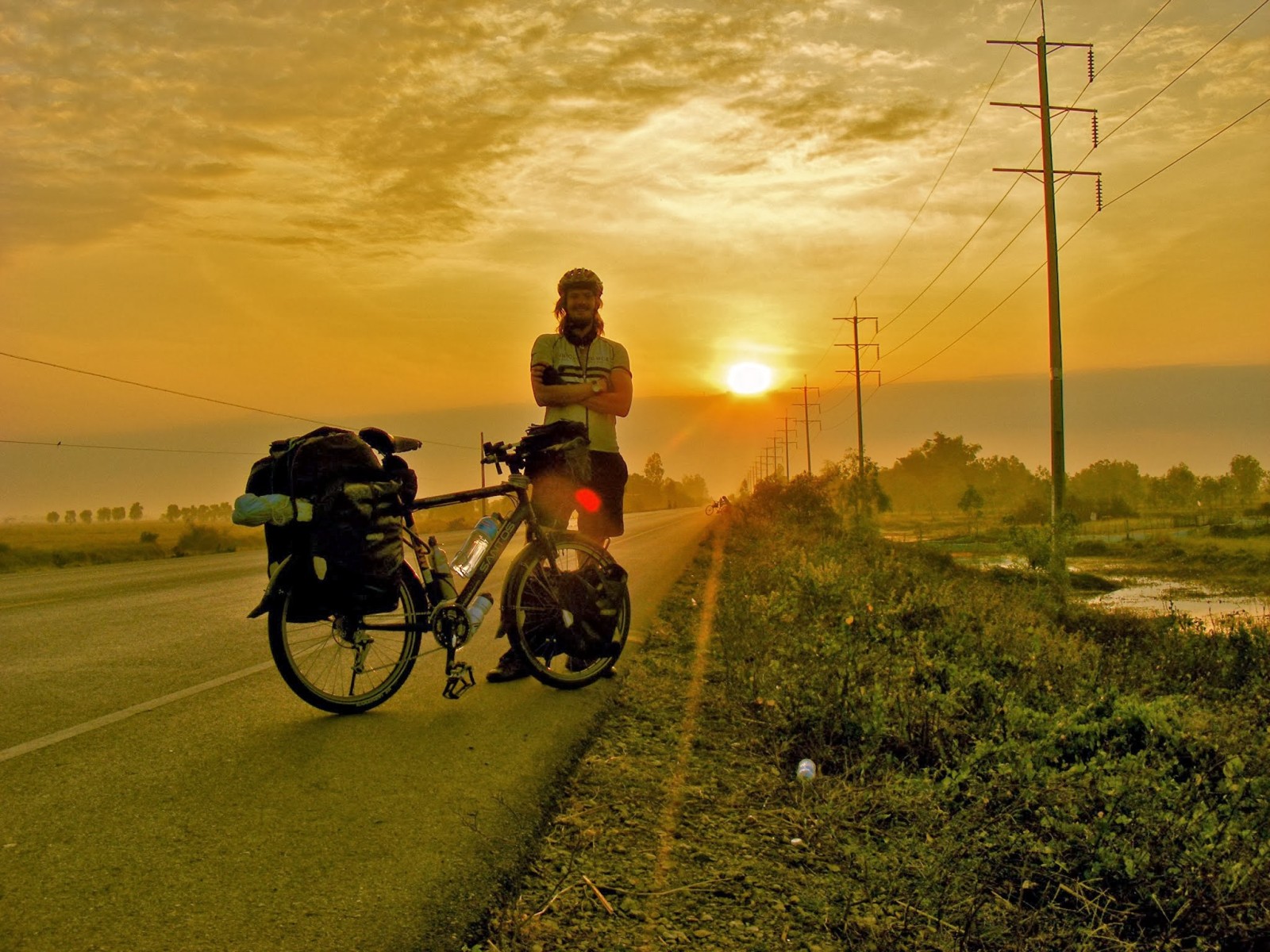
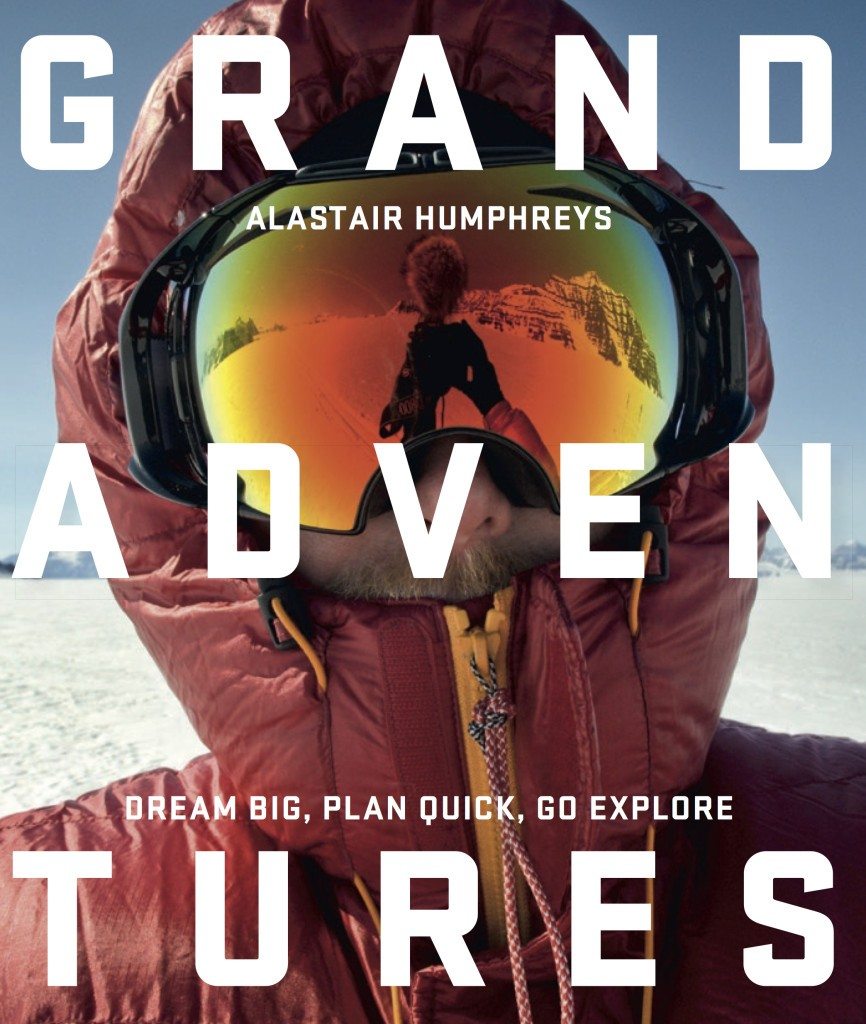
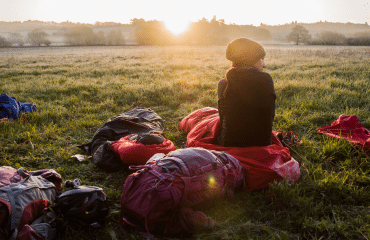
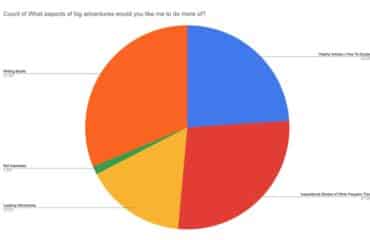
Great interview lads!
Can I interview you next?